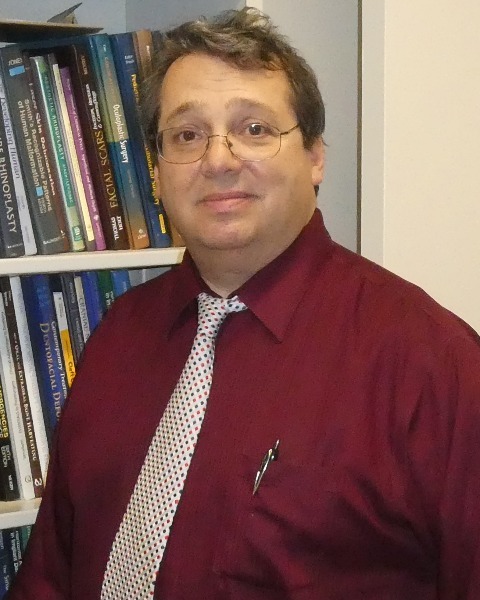
NS-7 Nerve Injury Considerations & Management
CE Hours: 1.5
Description: Sensory disturbances to the peripheral branches of the trigeminal nerve can be a debilitating disruption to patients leading to problems with speech, mastication, food and liquid incompetence and difficulty with activities of daily living. These injuries may arise from a number of causes in dentistry including local anesthesia administration, exodontia, endodontic procedures, implant placement, preprosthetic surgery and treatment of maxillofacial pathology. Some of the etiological factors resulting in trigeminal nerve injury are unpreventable, however, more precise surgical techniques and better imaging modalities may help reduce the incidence of these injuries. It is important for practitioners to explain these risks to patients as part of the informed consent process and to recognize and document the presence of nerve injuries. Patients should be treated in a timely fashion or referred to practitioners skilled in microsurgical techniques for optimal sensory improvement. This presentation will review the etiologies of trigeminal nerve injury, neurosensory testing and documentation, classification schemes, indications for treatment and referral, microsurgical techniques and outcome assessments.
Learning Objectives:
- Define the anatomy and mechanisms of nerve injury.
- Review the testing modalities to evaluate trigeminal nerve injuries.
- Describe the surgical procedures required to treat trigeminal nerve injuries and outcomes from trigeminal nerve microsurgery.
Key:

Vincent Ziccardi, DDS, MD
Dr Ziccardi attended college at New York University where he received a Bachelor’s degree in Chemistry. From there, he attended Columbia University and earned his dental degree. Upon graduation from Columbia, he was accepted into the integrated MD/Oral and Maxillofacial Surgery residency training program at the University of Pittsburgh where he earned his MD degree and certificate in oral and maxillofacial surgery. It was during this time working with faculty in both the oral and maxillofacial surgery and Neurosurgery departments that he gained interest and experience in the management of trigeminal nerve injuries.
Upon completion of training, Dr Ziccardi took a position as Assistant Professor and Mount Sinai Medical Center in New York City. He worked at this institution until taking a position at his current home at Rutgers School of Dental Medicine in 1997. While working in New Jersey, he was initially made residency program director in 1998 and ultimately Chair of the department and Chief of Dental Medicine at University Hospital in 2002. He is presently tenured Professor at the University and holds a co-terminus position in the Division of Plastic Surgery.
Dr. Ziccardi is extensively published and nationally recognized expert in trigeminal nerve microsurgery. He continues to serve as Chair, Chief of Service within University Hospital and Associate Dean of Hospital Affairs as well as the Director of the Craniofacial Center at University Hospital.
Disclosure(s): Axogen, Inc: no financial payment (Ongoing)

